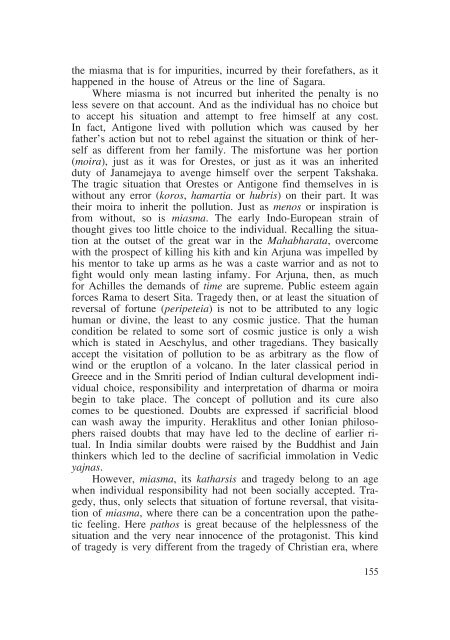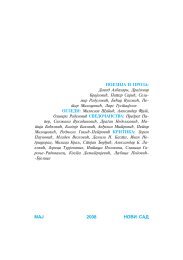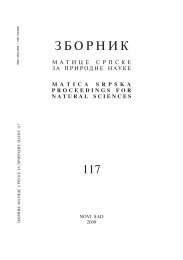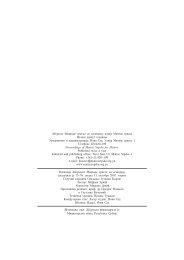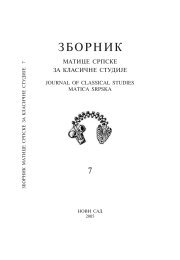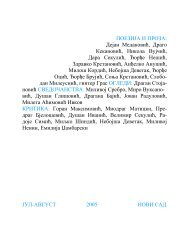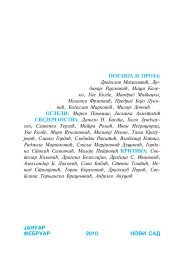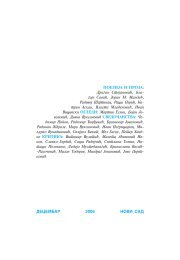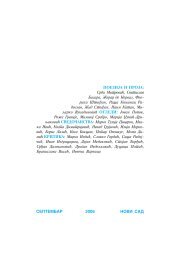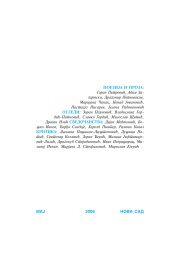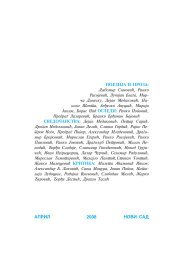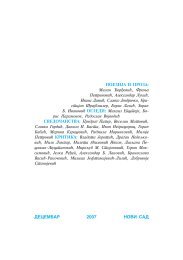Create successful ePaper yourself
Turn your PDF publications into a flip-book with our unique Google optimized e-Paper software.
the miasma that is for impurities, incurred by their forefathers, as it<br />
happened in the house of Atreus or the line of Sagara.<br />
Where miasma is not incurred but inherited the penalty is no<br />
less severe on that account. And as the individual has no choice but<br />
to accept his situation and attempt to free himself at any cost.<br />
In fact, Antigone lived with pollution which was caused by her<br />
father's action but not to rebel against the situation or think of herself<br />
as different from her family. The misfortune was her portion<br />
(moira), just as it was for Orestes, or just as it was an inherited<br />
duty of Janamejaya to avenge himself over the serpent Takshaka.<br />
The tragic situation that Orestes or Antigone find themselves in is<br />
without any error (koros, hamartia or hubris) on their part. It was<br />
their moira to inherit the pollution. Just as menos or inspiration is<br />
from without, so is miasma. The early Indo-European strain of<br />
thought gives too little choice to the individual. Recalling the situation<br />
at the outset of the great war in the Mahabharata, overcome<br />
with the prospect of killing his kith and kin Arjuna was impelled by<br />
his mentor to take up arms as he was a caste warrior and as not to<br />
fight would only mean lasting infamy. For Arjuna, then, as much<br />
for Achilles the demands of time are supreme. Public esteem again<br />
forces Rama to desert Sita. Tragedy then, or at least the situation of<br />
reversal of fortune (peripeteia) is not to be attributed to any logic<br />
human or divine, the least to any cosmic justice. That the human<br />
condition be related to some sort of cosmic justice is only a wish<br />
which is stated in Aeschylus, and other tragedians. They basically<br />
accept the visitation of pollution to be as arbitrary as the flow of<br />
wind or the eruptlon of a volcano. In the later classical period in<br />
Greece and in the Smriti period of Indian cultural development individual<br />
choice, responsibility and interpretation of dharma or moira<br />
begin to take place. The concept of pollution and its cure also<br />
comes to be questioned. Doubts are expressed if sacrificial blood<br />
can wash away the impurity. Heraklitus and other Ionian philosophers<br />
raised doubts that may have led to the decline of earlier ritual.<br />
In India similar doubts were raised by the Buddhist and Jain<br />
thinkers which led to the decline of sacrificial immolation in Vedic<br />
yajnas.<br />
However, miasma, its katharsis and tragedy belong to an age<br />
when individual responsibility had not been socially accepted. Tragedy,<br />
thus, only selects that situation of fortune reversal, that visitation<br />
of miasma, where there can be a concentration upon the pathetic<br />
feeling. Here pathos is great because of the helplessness of the<br />
situation and the very near innocence of the protagonist. This kind<br />
of tragedy is very different from the tragedy of Christian era, where<br />
155


